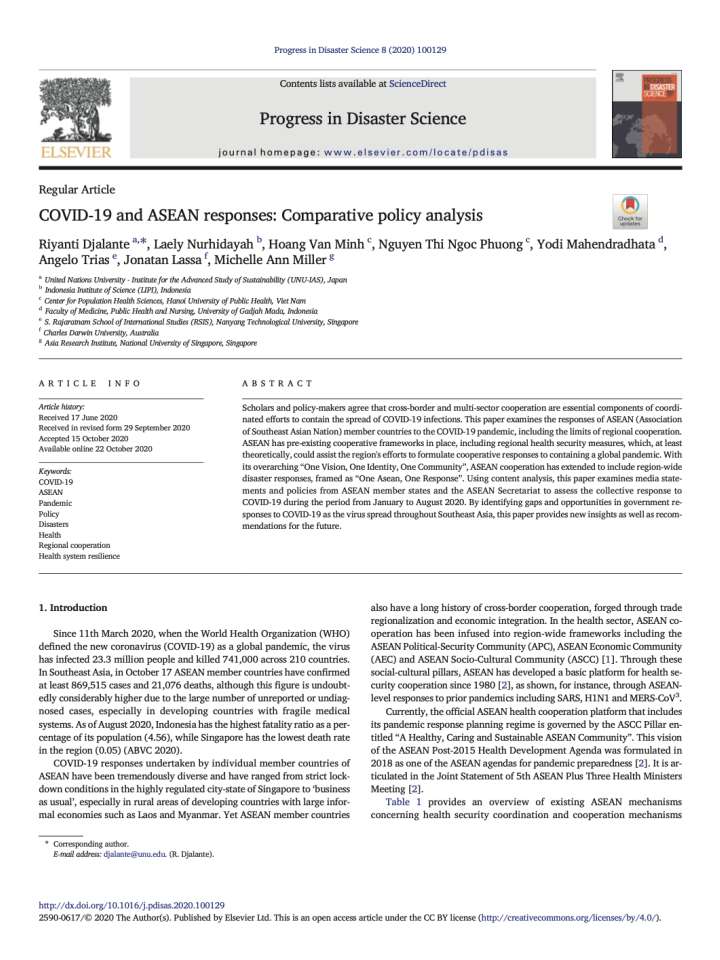COVID-19 and ASEAN responses: Comparative policy analysis
This paper examines the responses of ASEAN (Association of Southeast Asian Nation) member countries to the COVID-19 pandemic, including the limits of regional cooperation, as cross-border and multi-sector cooperation are essential components of coordinated efforts to contain the spread of COVID-19 infections. ASEAN has pre-existing cooperative frameworks in place, including regional health security measures, which could assist the region's efforts to formulate cooperative responses to containing a global pandemic. This paper examines media statements and policies from ASEAN member states and the ASEAN Secretariat to assess the collective response to COVID-19 during the period from January to August 2020.
By identifying gaps and opportunities in government responses to COVID-19 as the virus spread throughout Southeast Asia, this paper finds that at the regional level, there has been a lack of cohesiveness in utilizing existing regional health frameworks to develop a coherent response to the pandemic. Within member countries, new outbreaks of second waves of the virus show that temporary success in containing the virus cannot be taken for granted as complacency can result in fresh outbreaks that can quickly jump organizational scales of governance to overwhelm national health systems. Coordination at national level has worked really well and regional coordination, amid slightly late, allows for refocusing of efforts. Communication has worked particularly well, especially in terms of provision of regularly updated data on impacts of Covid-19 at the regional level, which enable comparison between countries and input to the global database. Resource and funding, particularly through existing mechanisms and collaboration with other countries.
Explore further
